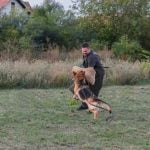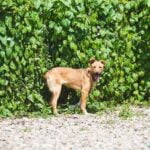Training an older dog to duck hunt can be a gratifying experience for both the dog and its owner. Despite common misconceptions that older dogs are incapable of learning new skills, with patience, consistency, and the right approach, older dogs can excel in the world of duck hunting.
The bond that is formed between a seasoned dog and its owner during training is invaluable, creating a partnership built on trust and camaraderie. In this guide, we will explore the steps involved in training an older dog to become a proficient duck hunting companion.
Before diving into training exercises, it is crucial to assess your older dog’s physical condition. Evaluating their health and physical abilities will help determine what level of training intensity they can handle. Building upon this foundation of physical assessment, establishing trust and bonding with your dog is essential for successful hunting endeavors. A strong relationship based on communication and mutual respect will lay the groundwork for effective training sessions.
As you embark on the journey of training your older dog to duck hunt, it is important to refresh their basic obedience commands and behaviors. These foundational skills not only ensure safety in the field but also help maintain control over your dog during hunting expeditions.
Additionally, introducing your dog to water gradually and acclimating them to swimming is vital for duck hunting success, as many retrieving scenarios will involve bodies of water. By following these steps and implementing proper training techniques, you can transform your senior companion into a skilled hunting partner ready to tackle the challenges of duck hunting with enthusiasm and proficiency.
Assessing Your Dog’s Physical Condition
As you embark on the journey of training your older dog to duck hunt, it is crucial to assess your furry companion’s physical condition. Evaluating your dog’s health and abilities before diving into any training regimen will help you tailor the training to suit their specific needs. Older dogs may have limitations or health issues that need to be taken into consideration when planning their hunting training.
Before starting any physical training, it is advisable to consult with your veterinarian to ensure that your dog is in good health and able to handle the demands of hunting activities. Your vet can provide valuable insights into any potential concerns or restrictions based on your dog’s age and overall well-being. Additionally, monitoring your dog’s weight, joint health, and stamina levels will help you gauge their readiness for duck hunting training.
Incorporating activities that promote strength, agility, and flexibility can help prepare your older dog for the physical requirements of duck hunting. Gentle exercises like walking, swimming, and short retrieves can improve endurance and muscle tone.
It is essential to gradually increase the intensity and duration of these exercises to prevent injuries and allow your older dog to build up their physical capabilities over time. By being mindful of your dog’s physical condition and working within their limits, you can set them up for success in their duck hunting journey while prioritizing their health and well-being.
| Physical Assessment Considerations | Benefits |
|---|---|
| Evaluate overall health status with a veterinarian | Ensures safety during training |
| Monitor weight, joint health, and stamina levels | Customizes training regimen accordingly |
| Incorporate strength-building exercises gradually | Improves endurance for hunting activities |
Establishing Trust and Bonding
Establishing a strong bond with your older dog is crucial for creating a successful hunting partnership. This bond is built on trust, communication, and mutual respect, and it can significantly enhance your duck hunting experience. Here are some tips on how to strengthen the bond with your older dog:
- Spend quality time together: Engage in activities that your dog enjoys, whether it’s playtime, going for walks, or simply lounging together. This bonding time helps foster a deeper connection between you and your furry companion.
- Use positive reinforcement: Reward good behavior with treats, praise, and affection. Positive reinforcement not only encourages desirable behaviors but also builds trust and reinforces the bond between you and your dog.
- Communicate effectively: Pay attention to your dog’s body language and vocal cues to better understand their needs and emotions. Clear communication is essential in establishing trust and building a strong relationship.
By investing time and effort into building a strong bond with your older dog, you are laying the foundation for a successful hunting partnership. Remember that patience, consistency, and love are key components in developing a trusting relationship with your canine companion.
Once you have established a solid bond with your older dog, you will find that training them for duck hunting becomes easier and more effective. Your dog will be more responsive to commands, more eager to please you, and more willing to work as a team during hunting expeditions. The strong bond you have cultivated will translate into improved cooperation in the field.
Basic Training Refresher
Training an older dog to duck hunt can be a rewarding experience for both the dog and the owner. However, before diving into hunting training, it is essential to ensure that your dog possesses a strong foundation in basic obedience commands. These commands form the building blocks for successful hunting behavior and cooperation in the field.
One crucial aspect of basic training refresher is reinforcing commands such as “sit,” “stay,” “come,” and “heel.” It is important that your older dog responds promptly and reliably to these cues, as they will be instrumental in controlling your dog during hunting expeditions. Additionally, behaviors like walking on a leash without pulling, remaining calm around distractions, and following directions are vital for effective hunting training.
Consistency is key when refreshing your older dog’s obedience training. Practice these commands regularly in various environments to ensure that your dog can perform them under different conditions.
Positive reinforcement techniques, such as using treats or praise, can help motivate your older dog to comply with commands and strengthen their understanding of what is expected of them during hunting activities. By solidifying these foundational behaviors, you will set a strong groundwork for teaching more advanced hunting skills to your older canine companion.
Introduction to Water
Introducing your older dog to water and helping them become confident swimmers is a crucial step in preparing them for duck hunting. Water is a significant element in the sport, as ducks typically land on bodies of water, requiring your dog to swim out to retrieve them. Here are some steps on how to train an older dog to duck hunt by introducing them to water:
- Start Slow: Begin by introducing your dog to shallow water where they can comfortably wade and gradually increase the depth as they become more comfortable. Use positive reinforcement such as treats or praise to encourage them.
- Use a Positive Approach: Make the experience enjoyable for your older dog by incorporating playtime in the water. Throw a toy or ball for them to retrieve, allowing them to associate water with fun and excitement.
- Build Confidence: If your older dog shows signs of hesitation or fear, take things slow and provide reassurance. Use a flotation device if needed to help build their confidence in the water.
By taking the time to introduce your older dog properly to water and gradually acclimate them to swimming, you are setting the foundation for successful duck hunting outings. Remember that patience and positive reinforcement are key when training an older dog for this new skill. With consistency and dedication, you can help your faithful companion become a skilled retriever in the water, enhancing their overall hunting abilities.
Exposure to Gunfire
Understanding Your Older Dog’s Reaction
When introducing an older dog to the sound of gunfire for duck hunting, it is crucial to understand their individual reaction and temperament. Some dogs may be naturally anxious or sensitive to loud noises, while others may display a more relaxed demeanor. Observing your dog’s behavior and body language during initial exposure to mild gun sounds can help you determine how best to proceed with their desensitization training.
Gradual Exposure and Positive Reinforcement
One effective method for desensitizing an older dog to gunfire is through gradual exposure paired with positive reinforcement. Start by playing recordings of gunshot sounds at a low volume while engaging your dog in a preferred activity or offering treats. Slowly increase the volume over multiple sessions, always monitoring your dog’s response for signs of stress or fear. Pairing the sound of gunfire with something enjoyable for your dog can help create a positive association and reduce anxiety.
Professional Guidance and Support
If you encounter challenges or notice increased anxiety in your older dog during desensitization training, seek guidance from a professional trainer experienced in hunting dog behavior. They can provide targeted strategies and hands-on assistance to help your dog overcome their fear of gunfire in a safe and controlled environment.
Remember that every older dog is unique, and some may require more time and patience to adjust to the sound of gunshots before they can confidently accompany you on duck hunting expeditions.
By following these steps and being patient with your older dog, you can gradually desensitize them to the sound of gunfire and ensure they remain calm, focused, and ready for successful duck hunting outings. The process may take time, but with consistency, positive reinforcement, and expert guidance if needed, you can help your loyal companion develop into a skilled hunting partner even in their later years.
Retrieval Training
Start With Basic Retrieval
Begin retrieval training in a familiar environment with objects your dog is already familiar with, such as toys. Use positive reinforcement techniques like treats and praise to encourage your dog to bring the object back to you. Gradually increase the distance of the retrieve, building your older dog’s confidence in fetching items.
Introduce Game Scents
Once your older dog has mastered basic retrieval, start introducing game scents to simulate the experience of hunting ducks. Use duck wings or scent training aids to familiarize your dog with the smell of waterfowl. Encourage them to retrieve these scented objects and reward them for successful retrieves.
Develop Delivery Skills
Teach your older dog to deliver retrieved items directly into your hand by using commands like “drop” or “give.” Practice this skill repeatedly during training sessions until your dog reliably delivers game without dropping it on the ground.
This skill is essential for duck hunting, as it ensures that the bird remains undamaged after retrieval. By focusing on developing these retrieval skills, you can prepare your older dog for a successful duck hunting season and strengthen the bond between you and your canine companion.
Advanced Hunting Skills
Training an older dog to duck hunt can be a fulfilling and rewarding experience for both the dog and the owner. While older dogs may have some limitations compared to younger counterparts, they can still learn new skills with patience and consistency. One key aspect of training an older dog for duck hunting is to focus on enhancing their hunting abilities through more advanced methods such as scent work and blind retrieves.
Scent work is a crucial skill for any hunting dog, including older ones. Teaching your older dog to recognize and follow scents can significantly improve their tracking abilities while out in the field. Incorporate scent training into your regular practice sessions by using scent markers or decoys to simulate real hunting scenarios. This will help your older dog sharpen their sense of smell and become more proficient at tracking down game during duck hunts.
Another advanced skill that can take your older dog’s hunting abilities to the next level is teaching them how to perform blind retrieves. Blind retrieves involve sending your dog to retrieve game that they have not seen fall, relying solely on verbal or hand signals from you, the handler.
This advanced technique requires patience and consistent training, but it can greatly enhance your older dog’s ability to locate downed ducks in challenging hunting environments. Practice blind retrieves gradually and increase the difficulty over time to keep your older dog engaged and continuously improving their skills.
| Training Method | Description |
|---|---|
| Scent Work | Incorporate scent markers or decoys into training sessions to improve tracking abilities. |
| Blind Retrieves | Teach your older dog to retrieve game they have not seen fall using verbal or hand signals. |
Safety Considerations
Training an older dog to duck hunt can be a gratifying experience for both the dog and the owner. It allows them to bond on a deeper level, engage in a shared activity, and enjoy the thrill of the hunt together.
However, when embarking on this training journey, safety should always be a top priority. By following proper safety measures, using appropriate gear, and monitoring your dog’s well-being during hunting expeditions, you can ensure a safe and enjoyable experience for all involved.
One of the essential aspects of ensuring safety during duck hunting training is using the right gear. This includes items such as life jackets for your dog to ensure their safety while swimming in unfamiliar waters, as well as protective eyewear and ear protection for both you and your furry companion during hunting sessions. Additionally, having a reliable GPS collar or tracking device can provide peace of mind in case your dog wanders off or gets lost during the hunt.
Monitoring your dog’s well-being throughout the training process is crucial, especially when working with an older canine companion. Be attentive to signs of fatigue, dehydration, or any physical discomfort that may arise during training or hunting.
Remember to pace training sessions according to your dog’s abilities and take regular breaks to prevent overexertion. By prioritizing safety measures and keeping a close eye on your dog’s well-being, you can create a secure environment for them to learn how to duck hunt successfully.
In conclusion, while training an older dog to duck hunt requires time, patience, and dedication, it can ultimately lead to a rewarding partnership in the field. By establishing trust and bonding with your canine companion, refreshing basic obedience skills, introducing water gradually, desensitizing them to gunfire noises, and practicing retrieval techniques, you can prepare your older dog for successful hunting expeditions.
Remember that safety should always come first – use appropriate gear, monitor your dogs’ well-being closely during outings, and prioritize their health and comfort throughout the training process. With proper safety considerations in place, you can embark on a fulfilling journey of training an older dog to excel at duck hunting.
Frequently Asked Questions
Can You Teach an Old Dog to Duck Hunt?
Teaching an old dog to duck hunt is definitely possible, but it may require more time, patience, and effort compared to training a young puppy. Older dogs may have established habits and behaviors that need to be unlearned or modified, so consistency in training is key.
The key is to use positive reinforcement techniques and make the training sessions fun and rewarding for the dog.
What Is the Easiest Dog to Train for Duck Hunting?
Labrador Retrievers are often considered one of the easiest dogs to train for duck hunting. They are intelligent, eager to please, and have a natural instinct for retrieving. Labs are known for their strong work ethic and adaptability, making them excellent companions for duck hunters. With proper training and socialization, Labs can excel in the field.
How Do You Train a Dog to Hunt Ducks?
Training a dog to hunt ducks involves several key steps. First and foremost, it’s important to build a strong foundation of basic obedience skills such as sit, stay, come, and heel. Incorporate dummy retrieves using objects resembling ducks to introduce your dog to the concept of retrieving.
Gradually introduce water retrieves in shallow waters before moving on to actual duck hunting scenarios. Consistent practice, positive reinforcement, and patience are essential components of successful duck hunting dog training.

Welcome to the blog! I am a professional dog trainer and have been working with dogs for many years. In this blog, I will be discussing various topics related to dog training, including tips, tricks, and advice. I hope you find this information helpful and informative. Thanks for reading!





